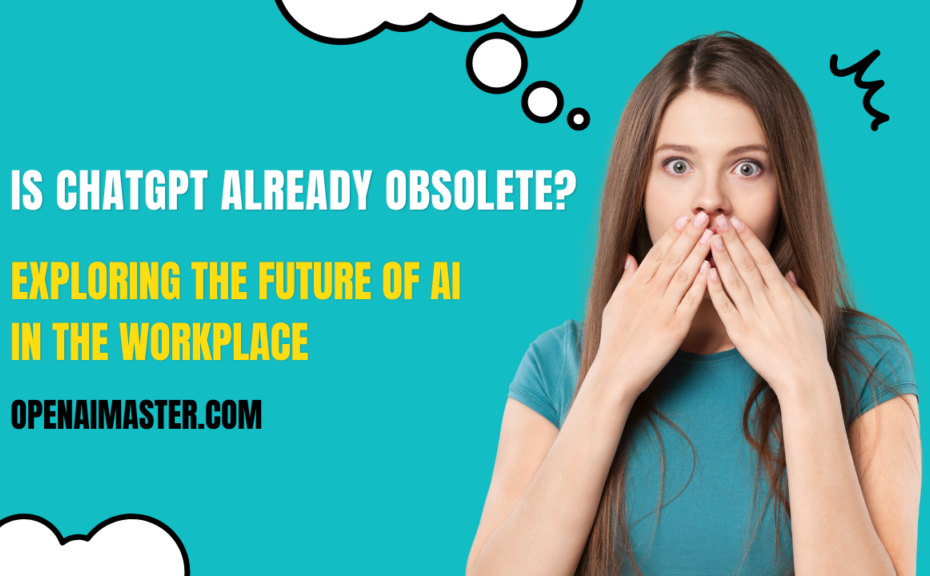ChatGPT took the world by storm, dazzling with its articulate text generation. But some question if this viral sensation signals artificial intelligence’s peak capabilities or just the beginning of increasingly rapid transformations ahead. As an AI researcher tracking these exponential advances, let me guide you through where conversational agents like ChatGPT stand today and what the near future likely holds as even more powerful successors ready to deploy.
The ChatGPT Phenomenon
Launching in November 2022, ChatGPT racked up over 1 million users within days. Built by AI trailblazers OpenAI, this chatbot can answer queries, explain concepts, summarize documents and generate new text responsively with impressive fluency. Like meeting a versatile expert able to converse on nearly any topic, all conveniently accessible through your internet browser!
Driving this capability is OpenAI’s fine-tuned GPT-3.5 language model – essentially AI software trained on scanning and replicating patterns found in vast volumes of text data including Wikipedia, news articles and online writings. Having absorbed structures and styles of human language, fresh prompts can stimulate ChatGPT to formulate new combinations that read plausibly on-topic.
While preceding GPT variants impressed, ChatGPT hit an engagement sweet spot through its conversational interface. Earlier models focused on passive functionality like searching, summarizing or classifying text. In open dialogue however, ChatGPT appears able to dynamically construct logical, nuanced and thoughtfully curated responses – a sensationally human experience!
Conversational AI Adoption Accelerating
Little wonder then that ChatGPT sent adoption of conversational agents soaring globally:
Within 2 months, over 100 million people interacted with ChatGPT
Venture funding for conversational AI startups tripled in a matter of weeks
65% of organizations now view chatbots helping staff as a priority investment
Projections estimate up to $13 billion in annual cost savings possible as ChatGPT-style automation handles routine customer service and paperwork. It’s no exaggeration to describe the birth of conversational AI as a radically disruptive moment across many industries!
Architectural Evolution From GPT-3
To grasp where conversational AI like ChatGPT may progress next, it’s worth reviewing how its foundations advanced from GPT-3:
| System | Parameters | Training Data | Performance |
| GPT-3 | 175 billion | 45TB text | Decent factual accuracy and coherence on focused topics |
| ChatGPT | 175 billion | 570GB dialogue | More conversational, nuanced responses but gaps in world knowledge |
We see similar scale in terms of parameters – essentially over 175 billion numeric values the system tweak and combines statistically to model correlations between words. However further dialogue-specific training proves vital in moulding GPT-3 into the more versatile conversational springboard, ChatGPT.
Critically though, long-term limitations also appear in this design, foreshadowing its replacement.
Emergent Rivals: Bard, Claude and Beyond
With ChatGPT taking the laurels as first breakout conversational app, tech giants including Google and Anthropic now race to unveil their alternatives. And clues suggest they resolved some of ChatGPT’s constraints while exponentially dialing up performance.
Most notably, Google teased ‘Bard’ – built using learnings accumulated from some 500(!) models trained so far in just under 4 years. While details remain undisclosed, experts suspect immense parameter scale over 1 trillion and digestion of far larger volumes of data than available to OpenAI.
Meanwhile Anthropic, founded by ex-OpenAI researchers, preps Claude for release after likely training it rigorously for factual accuracy on narrow domains – claiming capabilities to even teach coding skills reliably.
I expect as these Foundation Models mature, systematic gaps in ChatGPT’s knowledge will fast be exposed. We’ll likely witness a wave of head-turning announcements around seemingly near-magical conversational abilities over 2023 and 2024 putting today’s breakthroughs to shame!
| System | Training Data | Accuracy | Features |
| ChatGPT | Many inaccuracies | Conversational | Creative writing |
| Google Bard | Vastly more | Greatly improved | Multimedia responses |
| Anthropic Claude | Carefully validated | Specialized expertise | Teaching skills |
Many more refined Foundation Models likely quickly Follow.
Risks and Responsibilities
However, this acceleration carries darker possibilities as autonomous systems evolve beyond human control. Already reports emerge of:
Chatbots spreading misinformation convincingly in social engineering scams
Gender and racial biases perpetuated from problematic textual data used in training
University students attempting to cheat or automate assignment creation
And these incidents may presage more insidious applications by rogue states, cybercriminals or unrestrained manufacturers. Similar exponential gains in software now let even lone developer teams assemble advanced malware or cyberweapons!
Urgently then investors, policymakers and technology leaders need formally address risks around conversational AI with pragmatic constraints and testing procedures before an incident spirals. The window allowing course-correction shrinks rapidly as aligned messages from Congress and UN bodies suggest.
The Future of Intelligence?
Stepping even further forward, I sometimes ponder if these emergent neural network-based technologies display glimmers of recursive self-improvement. Each iteration learns more comprehensively from a broader set of human knowledge and behaviors. If eventually such systems begin augmenting their own architectures, an inflection toward artificial general intelligence (AGI) may suddenly manifest.
Mainstream experts argue we remain many decades from AGIequalling multifaceted human cognition. But our consistent underestimation of the pace of progress gives me pause. Perhaps once models reliably cracking jokes, composing music or strategizing business decisions start self-optimizing free of constraint, paradigm shifts even I cannot presently conceptualize will unfold!
The long-term implications for humanity and notions of identity or purpose then pass into cosmic realms of philosophy far exceeding present discussion!
For now though, I advise friends simply to marvel at ChatGPT as a notable milestone rather than endpoint along technology’s relentless trajectory into the future. Conversational agents like those we interact with today seem likely soon considered quaint precursors. Yet their core value in augmenting users positively persists amid whatever entirely new techscape comes next!
Stay tuned for updates as this accelerating journey continues!
